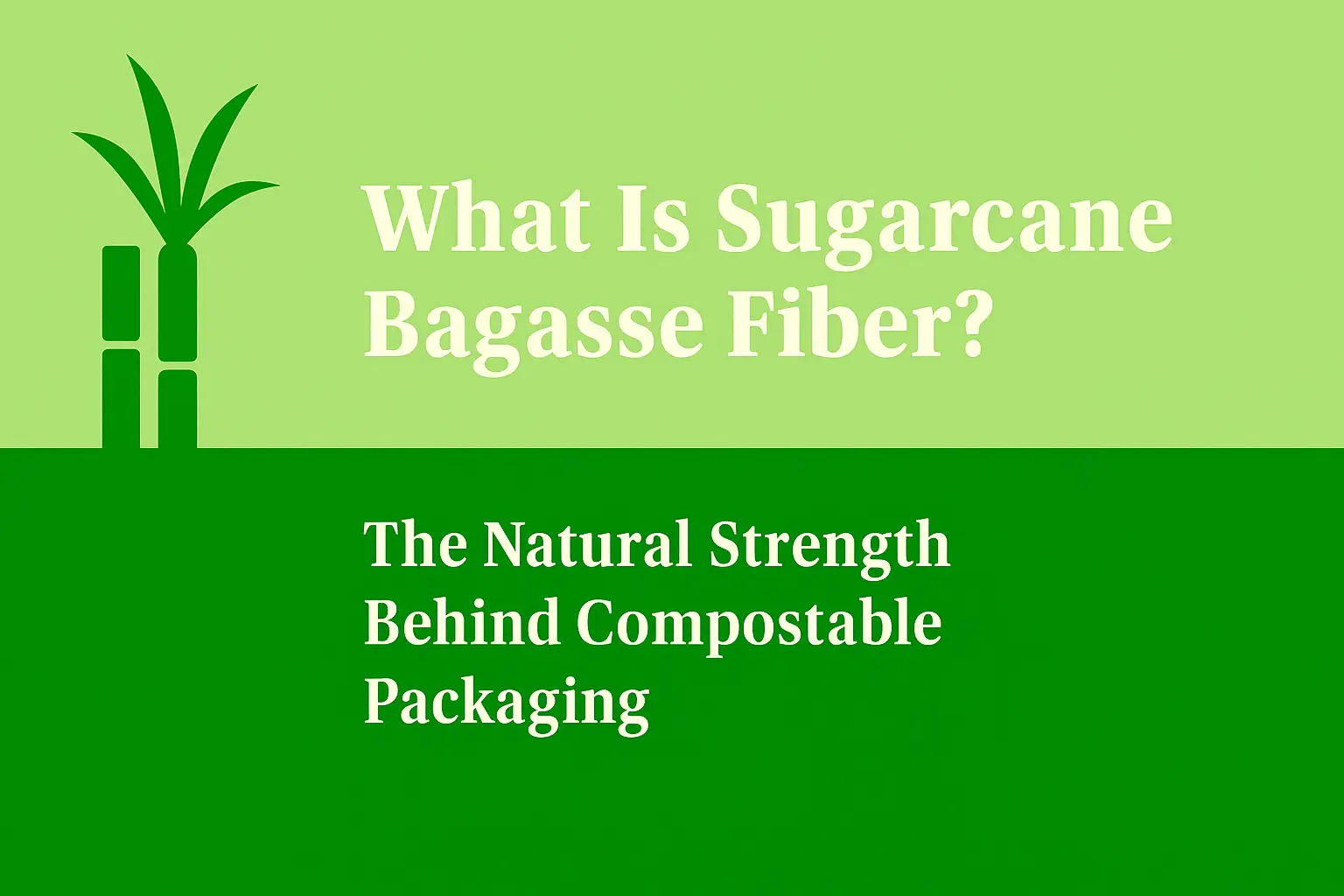Question: What is sugarcane bagasse fiber?
Answer: It is the natural plant-based fiber extracted from sugarcane bagasse — the fibrous residue left after juice extraction. Rich in cellulose and biodegradable by nature, it’s widely used in sustainable packaging and compostable tableware.
Understanding Sugarcane Bagasse Fiber
Bagasse fiber is derived from bagasse — the dry, fibrous material left after crushing sugarcane stalks for juice.
Once collected and dried, this fiber becomes a renewable raw material used across multiple eco-conscious industries.
🔗 Want to understand how sugarcane and bagasse are connected?
👉 Read: Why Are Sugarcane and Bagasse Always Mentioned Together?
What Is Bagasse Fiber Made Of?
Sugarcane bagasse fiber contains three key plant-based components:
- Cellulose – the primary structural material in plant cell walls
- Hemicellulose – a polysaccharide that provides flexibility
- Lignin – offers rigidity and durability
These components make the fiber strong, heat-resistant, and moldable — ideal for pressing into disposable plates, bowls, and containers.
Why Use Bagasse Fiber in Tableware & Packaging?
Here’s why sugarcane bagasse fiber is a top material for sustainable packaging:
- ✅ Strong – Holds both hot and cold food
- ✅ Moldable – Forms into food-safe shapes easily
- ✅ Plastic-Free – Contains no petrochemicals or microplastics
- ✅ Compostable – Fully biodegradable in industrial composting within 90 days
This makes it a favorite among businesses looking to replace plastic in food service and retail.
Is Bagasse Fiber Safe and Certified?
Yes. Properly processed sugarcane bagasse fiber is:
- 🍽 Food-safe
- 🧪 BPA-free
- 📄 Certified compostable (e.g., BPI, OK Compost, TÜV)
- 🌍 Compliant with international food-contact standards like LFGB (EU) and FDA (US)
Bagasse vs. Other Common Fibers
| Fiber Type | Source | Compostable | Requires Harvest | Food-Safe |
|---|---|---|---|---|
| Bagasse | Sugarcane | ✅ Yes | ❌ No | ✅ Yes |
| Bamboo Fiber | Bamboo | ✅ Yes | ✅ Yes | ✅ Yes |
| Wood Pulp | Trees | ❌ Not all | ✅ Yes | ✅ Yes |
| PLA | Corn (biopolymer) | ✅ In conditions | ✅ Yes | ⚠ Partial |
FAQ
Q: Is bagasse fiber biodegradable?
A: Yes. It is 100% plant-based and breaks down in compost environments within 60–90 days.
Q: Can bagasse fiber hold hot food?
A: Yes. It is heat-resistant and suitable for hot liquids and oily foods.
Q: What’s the difference between bagasse fiber and bamboo fiber?
A: Bagasse is a byproduct (no additional farming needed), while bamboo fiber requires harvesting. Both are eco-friendly, but bagasse makes better use of agricultural waste.

